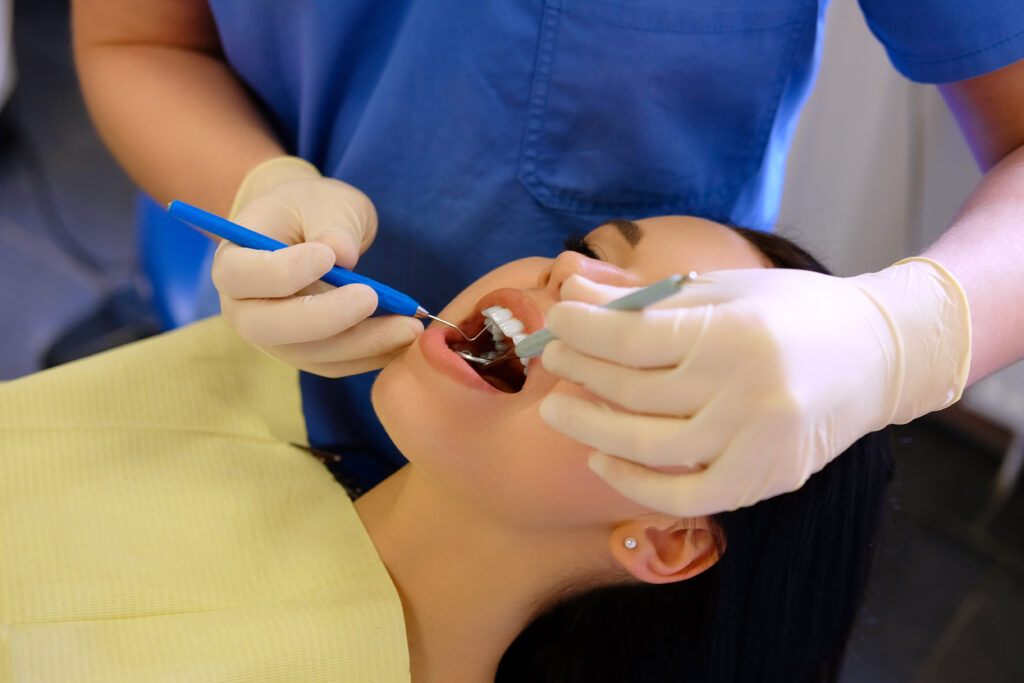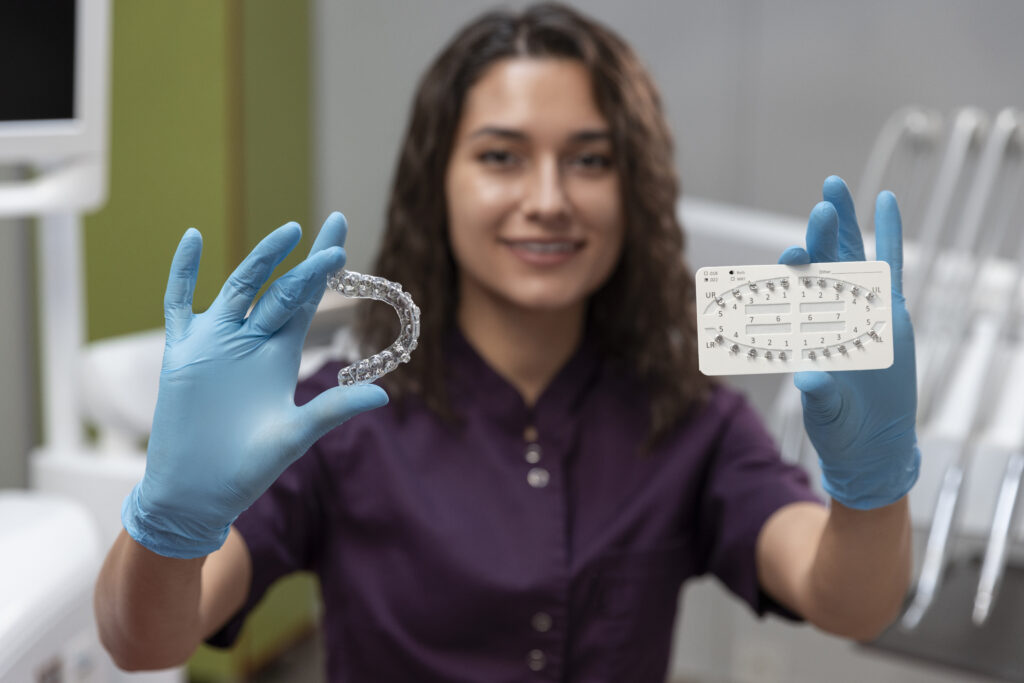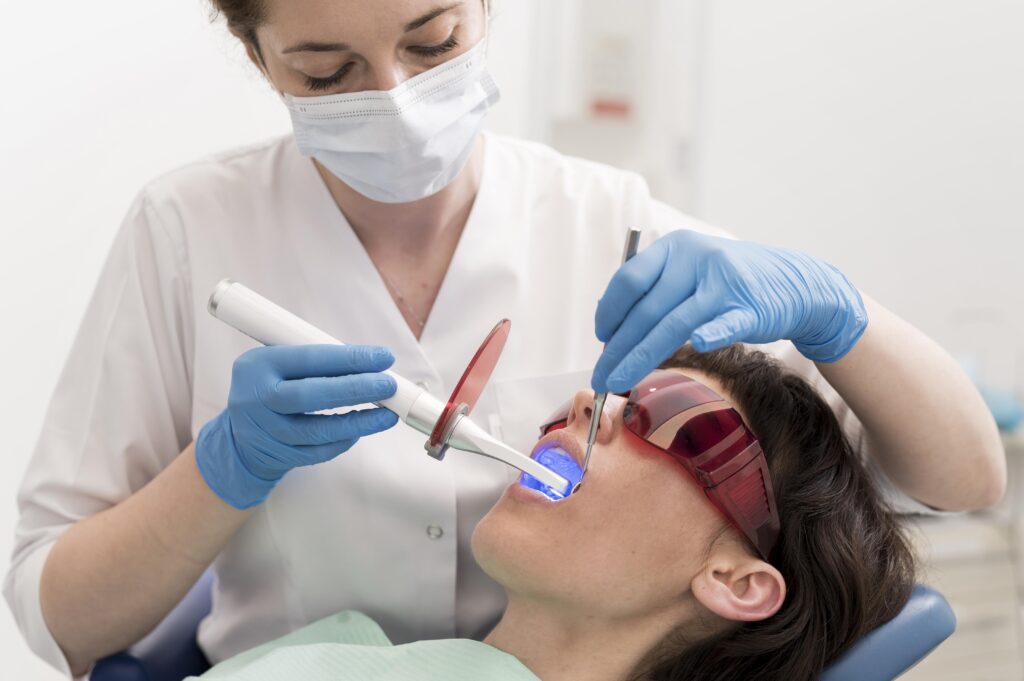Key Takeaways
- Early Detection Matters: Gingivitis, the first stage of gum disease, can often be reversed with consistent brushing, flossing, and regular dental cleanings before it progresses to periodontitis.
- Brushing your teeth twice a day and flossing daily are important for keeping your gums healthy. If your dentist recommends it, use an antibacterial mouthwash and make sure to drink enough water.
- Treatments like antibiotic gels, laser therapy, air polishing, and better home care can help manage early gum disease. However, these treatments work best when used alongside scaling and root planing.
- Visit your dentist regularly to keep your gums healthy. If you notice signs like bleeding gums, get help right away. Taking these steps can help you stay healthy without needing surgery.
Early gum disease, also called gingivitis, can often be reversed without surgery. Regular cleanings, better daily care, and lifestyle changes play a big role. But once gum disease starts moving into serious stage, non-surgical treatments like dental scaling and root planing are an effective way. Knowing your options early can make all the difference.
Many patients come to us worried after hearing the words “gum disease.” The first thought is often, “Will I need surgery?” In most early cases, the answer is no. At Puri Dentistry, we focus on prevention and minimally invasive treatments first. Let’s break down what works, what doesn’t, and how you can protect your gums before things get worse.
Understanding Early Gum Disease
Gum disease starts small. The first stage is called gingivitis. You might notice that your gums bleed when you floss, or that they look red and swollen. At this stage, the damage has not reached the bone, so it can be repaired with the right care.
But if it isn’t treated, gingivitis can progress into periodontitis. That’s when pockets form between the teeth and gums, bone starts to erode, and surgery may eventually be needed.
The goal is simple: catch it early, act early, and avoid invasive procedures later.
Where Daily Habits Fit In
Good oral hygiene isn’t just “basic care”; it’s your first line of defense against gum disease. The simple habits matter most:
- Brushing twice a day with a soft-bristle brush.
- Flossing daily, not just when food is stuck.
- Rinse with an antibacterial mouthwash if recommended.
- Drinking enough water to keep saliva flowing, since saliva helps fight bacteria.
These habits alone can often reverse gingivitis. The challenge is consistency. Missing flossing “just this once” adds up over months, and that’s when plaque hardens into tartar.
When Professional Cleaning Isn’t Enough
A routine cleaning removes plaque and tartar from above the gumline. That works fine for prevention or mild gingivitis. But if tartar builds up below the gums, brushing and flossing won’t reach it.
That’s where dental scaling and root planing come in. Scaling removes tartar from under the gumline, and root planing smooths the tooth surface so bacteria can’t stick as easily. Think of it as a deep reset for your gums.
Alternatives and Adjuncts to Scaling & Root Planing
Some patients ask if there are other non-surgical ways to handle gum disease.
- Antibiotic gels or rinses: This can help reduce bacteria. However, they are usually used together with scaling, not as a substitute for it.
- Air polishing systems: Some offices use a mix of air, water, and powder to remove bacteria gently. This is more of a supplement than a full replacement.
- Improved home care: Sometimes, stepping up brushing and flossing routines, along with professional cleanings every 3–4 months, can manage early stages.
None of these works as a permanent fix on their own if gum pockets are already forming. That’s why dentists usually recommend dental scaling and root planing as the baseline treatment for early to moderate gum disease.
Prevention Strategies That Actually Work
If you want to avoid needing deep treatment, these steps help:
- Don’t skip routine dental visits. A cleaning every six months is the minimum for most people.
- If you’ve had gum issues before, see your dentist every 3–4 months for maintenance.
- Eat a balanced diet. Sugary snacks feed bacteria that harm your gums.
- Avoid smoking or vaping because they slow down gum healing.
- Watch for early signs like bleeding gums or persistent bad breath.
Small changes add up, and they’re often enough to keep early gum problems from becoming something bigger.
Final Thoughts
So, can early gum disease be reversed without surgery? Yes, if it is at the gingivitis stage. Daily care and routine cleanings do the trick. But once gum pockets start forming, dental scaling and root planing is usually the most effective non-surgical solutions.
At Puri Dentistry, we believe in giving patients the least invasive option that still works. For most people, that means focusing on prevention, catching problems early, and using treatments like scaling and root planing before surgery ever becomes necessary.
Healthy gums are the foundation for a healthy smile. The sooner you take action, the easier it is to protect them.





